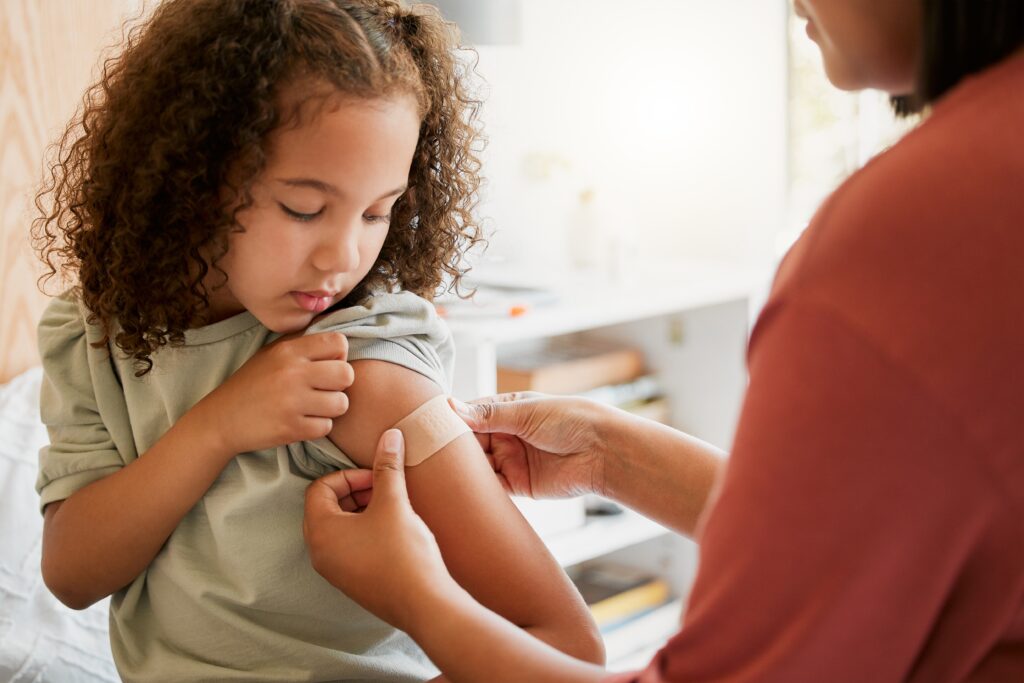Vaccination is the most important thing we can do to protect ourselves and our children against ill health. They prevent millions of deaths worldwide every year. However, if people stop having vaccines, it’s possible for infectious diseases to quickly spread again.
Find out what vaccinations are given when, on the NHS website
Measles – protect your child with the MMR vaccine
It’s very important to make sure that your child has had two doses of the MMR vaccine – this will protect them against three serious illnesses – measles, mumps and rubella. If your child is aged one or over and hasn’t had their vaccinations, please contact your GP Practice as soon as you can to arrange an appointment.
Measles spreads very easily between people who aren’t vaccinated. You can catch it just by spending time in the same room as someone. And it can cause children and people with a weakened immune system to be very unwell.
You may have heard on the news about measles cases in some parts of the country. To stop measles spreading further, the NHS is encouraging all parents to make sure that their children have been vaccinated. The NHS usually offers the first dose of MMR vaccine when your child turns one, then the second dose before they start school as part of the ‘pre-school booster’.
Measles usually starts with cold-like symptoms, followed by a rash a few days later. Some people may also get small spots in their mouth. If you think your child might have measles, check symptoms on the NHS website. Keep your child at home and call your GP Practice for advice first.